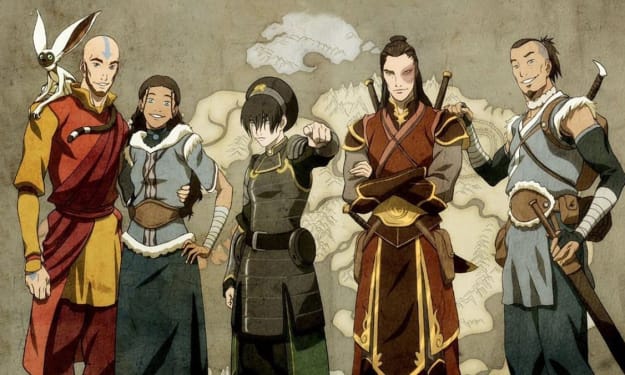Political Correctness in South Park
South Park Tackles Political Correctness, Trolling and the Social Divide

Over the years, South Park’s Trey Parker and Matt Stone have taken it upon themselves to address many controversial topics and social issues. From Scientology and Mormonism to homophobia and gender identity, South Park has tackled many issues that other shows feared to address and has done so in a way that considers all the possible angles. In a rare line of continuity between seasons, season 20 of South Park has begun where season 19 left off, in a divided society where political correctness has caused a tear between those who want social change and those who are content with society.
South Park has taken on political correctness in a deeply nuanced fashion. While heavily implying that the rapid expansion of political correctness has been alienating to some, a lack of political correctness serves to be far more divisive. As the season begins, the girls on the South Park Volleyball team kneel during the national anthem to protest the harsh words of an initially unknown internet troll, a clear reference to Colin Kaepernick. At first, the internet troll is assumed to be Eric Cartman and the girls place the blame on all the boys of South Park. These developments are spurred from another overarching concept that runs through this season: on line trolling and bullying.
The issue comes to a head when one female character quits social media after throwing her phone off a bridge, after which, all involved act as if she has died. Still assuming either Cartman or one of the boys at school is responsible for this reaction, the girls send a message by breaking up with all of their boyfriends. Feeling that this reaction to the actions of one person was unfair to himself and the other boys, Butters launches a radical boy’s rights group in a vulgar fashion. While his approach was certainly misguided, Butters’ narrative seemed to convey that idea that even though women face a many challenges and naysayers in society, it is wrong to blame all men the actions of certain individuals.
When the girls try to get P.C. principal to shut down Butters’ group, he reminds them that their right to protest is afforded equal protection under the first amendment. P.C. principal’s understanding of this issue and Butters’ reaction to the girls serves to remind the audience that even though negative speech can be protected by the first amendment, restriction of freedom of speech can also be alienating.
The internet troll who spurred these events, identified as Kyle’s dad, Gerald, makes it his mission to induce people to quit social media through vicious taunts and hate speech. Kyle’s dad explains that he began his internet presence as a yelp reviewer and later grew tired of people’s complaints and accusations of social injustice. As Gerald continues with his trolling, he becomes increasingly malicious. Kyle’s dad soon begins to troll and pick on a Swedish athlete and breast cancer survivor named Freja Ollegard, believing he will be able to drive her out of social media. However, the danger of Gerald’s trolling is made apparent when Ollegard takes her own life.
By initially showing people quitting social media as a metaphor for suicide, south park appeared to make light of the issue of bullying and critiquing the level of importance we place on social media as a society, where withdrawal from social media would be tantamount to death. However, when Kyle’s dad bullies one person to the point of suicide, the show suggests that while we are far too invested in and affected by social media and what goes on within it, bullying on the internet is a real problem that can play on people’s insecurities and self-esteem.
The push for further and more comprehensive social change seen in this and the previous season has been balanced by the group of people who believe that the key to a better society lies in the ideals of the past. The group of people led by Mr. Garrison, a thinly veiled allegory for Donald Trump, plays the role of those acting in reaction to social progressives by backlashing. This theme is tied up neatly in this season with the inclusion of the member berry, a mythical talking fruit that makes people nostalgic for the past with its to old pop trends and icons. While at first this seems to simply be a commentary on the tendency of our society to crave and receive a disproportionate number of remakes, sequels and reboots as of late, the creators of south park suggest that they may also be the root cause of Trump’s runaway success. The first suggestion of this connection is made when the member berries turn from referencing old films and television shows to negative comments about Latinos and homosexuals.
This connection suggests that the seemingly harmless trend of rebooting old film and television franchises may be symptomatic of the forces that have polarized our society. In other words, Parker and Stone suggest that our ability to praise and idealize the pop culture of the past is likely coincide with a tendency to idealize the past itself. This connection is made far clearer when one considers that Donald Trump has run under the slogan “Make America Great Again,” an ideology that clearly represents a certain reverence for the past, or an idealized version of it. The member berries serve as a metaphor for the social stagnation that can lead to a great social regression, a problem that is both characterized and hidden within an overemphasis on nostalgia.






Comments
There are no comments for this story
Be the first to respond and start the conversation.